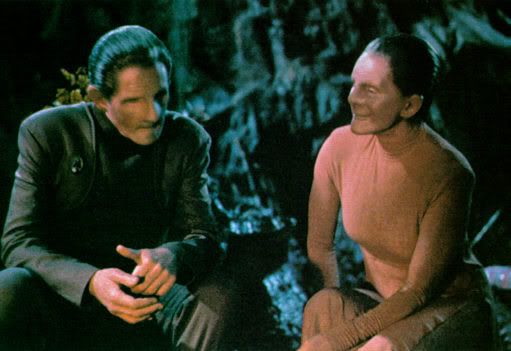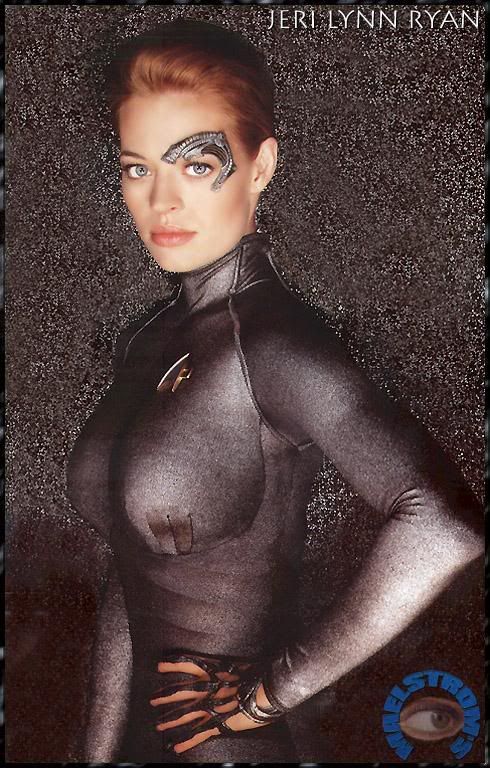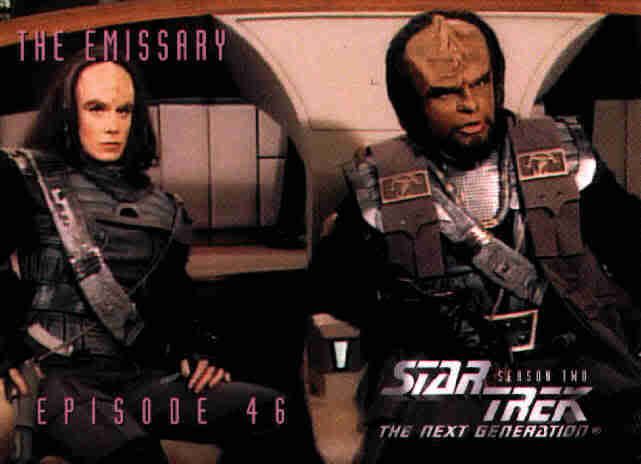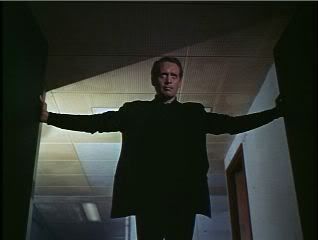Poetry, science fiction, fantasy, horror, and culture from a Lao American perspective.
Wednesday, November 28, 2007
TRA Jukebox!
'Cause I'm worth a million in prizes. ;)
On The Other Side Of The Eye Holiday Special

Let me start this with a very special thanks to everyone from across the country who already bought a copy of On The Other Side Of The Eye for themselves and your friends and family!
I really appreciate it.
You helped make it an amazing success as the first book of Lao American speculative poetry.
It has been well received across the US and internationally in just the first 6 months and I'm really excited about 2008 as awareness increases.
Before we finish 2007, it's a good time to point out:
If you order a copy of On The Other Side Of The Eye by December 13th, we can get it to you in time for the holidays, including Christmas, delivered to your door.
If you order it directly from me, I will include a nice note and inscription to you or the person of your choice. You will be satisfied! :)
I only have a few copies left before the next printing, and they're going fast!
At just $10 plus $2.50 shipping and handling, it's a great deal if you're looking for an exceptional gift! Have a great day!
The 161 Meme

Line 6 of Page 161 from Brian Azzarello and Eduardo Risso's 100 Bullets: Strychnine Lives is: "You ain't about that. We BOTH Goddamn KNOW you ain't got the BALLS." Sigh. The things I put on my reading shelf. :)
I tag any of my readers whose full name contains at least two of the same consonants.
Monday, November 19, 2007
Fantasy Matters Conference A Success
Some initial pictures from the highly successful conference Fantasy Matters at the University of Minnesota on November 16-18. Excellent and enjoyable at every level. :)
Before I begin my after-action report, I have to give a hand to the conference organizers, Lindsay Craig, Kathleen Howard and Jen Miller and all of the volunteers for putting together an informed, fun and amazing event.
As most of you know, I was given very short notice to read on Friday, and I was slated for the dreaded 8:30 Sunday panel with my good friends John Till and Robert Wood on Monstrous Assemblages.
See what happens when you don't slip the schedulers a $50?
Still, my parts went well enough, and John Till gave a truly excellent presentation.
John spanned political history, Russian art, images of the profane, the World of Darkness role playing game, a fabulous diagram and a great question that effectively drives a stake through the heart of that conventional wisdom which suggests during conservative eras horror thrives but wanes during liberal times. Great job!
And Robert also spoke well on issues in Tolkein's universe and the construction of the monstrous.
I was able to attend an interesting pair of papers on the issue of "His Dark Materials" including the topic of how the 'anti-religious' elements of the trilogy may be toned down and we may never see the sequels since, well, it's pretty hard to tone down the 'anti-religious' elements of a book about a war with heaven. :)
Neil Gaiman naturally gave a magnificent presentation, using us as guinea pigs for his new upcoming novel. It unfortunately made most of the rest of the writers in the audience slap our hands to our heads and go: "What a maddeningly genius idea, why didn't we think of that."
But that's just par for the course with Neil.
Had a great opportunity to meet some fine and incredible writers, including the ever-wonderful Nnedi Okorafor-Mbachu, author of Zahrah the Windseeker and Shadow Speaker, and whom I must confess was the real initial draw for me to the conference.
Neil, of course, we always know is going to be great, but I always like going to these conferences to see if you can spot the up-and-comers, and Nnedi is by far definitely in my short-list of people I'll be watching.
I'd met her first during Think Galacticon and the Carl Brandon Society, and she's got a great and lively take on things with her writing that she's seriously one to watch.
Nnedi will be back up here for Diversicon as well, taking the acclaimed Special Guest spot Minister Faust, Christopher Jones, Melissa S. Kaercher (Go Godzilla! Go Cthulhu! Go Zombies!) and I have all happily occupied in the past.
I had a chance to talk with the legendary Jack Zipes for a while about fairy tales and his upcoming book on fairy tales in the movies around the world. It was great and informative.
New faces I also had a chance to meet for the first time include the hilarious and multi-talented Patrick Rothfuss and the young Drew Bowling who has finished his first novel before he even left college.
David Anthony Durham, the author of Acacia was another writer who had a great presence, as well as Jim C. Hines, who's a great guy to talk to, working with goblins. :) I also met Jackie Kessler, who's a riot, as well as Theodora Goss and Damian Sheridan.
The folks from DreamHaven were there and it's always good to see them.
Among the local con regulars, I had a chance to catch up with Jody Wurl and Eric Heideman and also ran into Haddayr Copley-Woods, and they all seem to be doing really well. :) The free food and drinks afterwards at the Town Hall Brewery was wonderful and everyone worked well to make it worthwhile.
I will probably post more reflections on this all later, but for now, suffice it to say that this was really fun.
And DreamHaven books even sold out all of their copies of On The Other Side Of The Eye! :) Yay!
Friday, November 16, 2007
Happy Birthday to Lee Herrick!
Highlights From "Crazy People Reading" at the Loft, 11/15
From the amazing reading at the Loft featuring TRAs Shannon Gibney and Sun Yung Shin as well as Doug Kearny in a literary tour de force in a packed room. Claire Wilson was an exceptional MC organizing the event to popular acclaim, with other great literary and community figures attending including E.G. Bailey, Bao Phi, David Mura, Juliana Hu Pegues, Jae Ran Kim and Kim Park Nelson, Robert Karimi and more.
A special congratulations to Cakes by Fhoua for yet another fantastic and delicious cake. In fact, all of the refreshments and snacks were uniformly excellent and yummy.
Youtube videos of the performance should go up sometime around the end of the month once I survive Thanksgiving. :) But in the meantime, enjoy the slideshow. :)
Thursday, November 15, 2007
Reading at Fantasy Matters 11/16
I'm reading selections from my book On The Other Side Of The Eye at this weekend's Fantasy Matters Conference at the University of Minnesota in Room 35 of Mondale Hall at the University of Minnesota at 6 PM on Friday, 11/16.
I'll also be giving a presentation at 8:30 AM on Sunday, 11/18 in Room 50 on "Monstrous Assemblages" with John Till and Robert Wood.
For more information, you can check out the website at www.FantasyMatters.Org with the complete program being found at www.fantasymatters.org/html/program.pdf
I'm exctied to be reading and presenting in the same company as acclaimed luminaries as Neil Gaiman and Nnedi Okorafor-Mbachu. :)
Hope to see you there if you can make it!
Tuesday, November 13, 2007
Trambiguity. Copyrighted! ;)
Trambiguity was officially coined at 1:15 CST, 11/13/07 to denote the dual / multicontextual meanings embedded within the high context language of TRAs.
Example of usage: "Yes."
Not to be confused with Trampbiguity, which is a completely different thing entirely. In most cases.
:)
Alternate definition: [n.] a core state of being particular to most TRAs.
Monday, November 12, 2007
Media and Adoption
I'm going to be civil,but I do think it's rather tragic when, next to mainstream media, a parody newspaper, The Onion, still has said about all that needs to be said with the classic 2006 article: "My Adopted Daughter Is The Most Beautiful Child In The Third World."
And in the meantime:
I'll refrain from editorializing about this classic, fascinating video.
Sunday, November 11, 2007
TRA Jukebox: 11/11!
And you should go check out:
Leonard Cohen's First We Take Manhattan.
Stay tuned for next week's selections! :)
The Outsiders Within Series
Thursday, November 08, 2007
Worf: Sci Fi Icon, TRA Poster Child

Almost half-way through NAM, seems as apt a time as any to bring up one of the more interesting poster children of the TRA experience: Worf, from Star Trek: The Next Generation.
For those not up to date on their Star Trek mythology, the Klingons were once the main enemies of the Federation (a futuristic stand-in for the United States and United Nations)
Even though they were clearly a space-faring race with access to highly advanced technology. Hmmm. That sounds familiar to a lot of TRAs.
Sergey Rozhenko was a human engineer nearing retirement aboard the U.S.S. Intrepid, and during the Khitomer Massacre, was one of the first response team members who eventually took in Worf.
Worf then grew up in their household and eventually had a long and distinguished career serving on the USS Enterprise and many other adventures on the Deep Space Nine outpost.
***
But what we're interested in, for this post today, is the accuracy and depiction of Worf as a TRA.
It's apples to organges, but historically, the depiction of the TRA experience, whether it's in a production such as the Walleye Kid or Better Luck Tomorrow almost invariably rings false among adult TRAs.
At the risk of generalization, more often than not, we see our experience and perspective used merely as a plot device and the "character's" actions so inconsistent with how we might really react and respond to the world.
From an adoptee perpsective, there's rarely a shortage of individuals in the media who we're told to view as peers: Luke Skywalker, Oedipus, Batman, Superman, the Peach Boy and so on.
I'm also intrigued by the character of Odo in Deep Space Nine, and we may get around to talking about him in another post.


But back to Worf.
I found his depiction to be surprisingly among the most apt to date of the true TRA experience.
Because more often than not, he faced many of the challenges of living the bicultural experience and exhibited many of the classic coping strategies we employ throughout our lives as we struggle for reintegration, reconciliation and recognition of ourselves and our identities.
In the initial seasons, when we first meet Worf, he is a young Klingon raised by humans who has struggled to assert his identity as a Klingon, even as he tries to operate in an organization populated by xenophobes and racists who spent most of their careers trying to kill his people, and who still watch his assignment as security officer aboard the flagship of the Federation with great suspicion.
Or at least, as much as Federation anthropological records and unclassified Klingon records will allow. But that's another wrinkle.
Worf employs a classic TRA response strategy- he becomes extremely militant and 'Klingon-Pride' for lack of a better phrase, often to the point of being REALLY hard to talk with, and constantly peppering his conversations with bits about Klingon culture and things he's proud of it for.
And that alone might be enough to earn Worf a spot in our books as a well-written TRA, but what does it for me, is the accuracy with which Star Trek: The Next Generation also depicted Worf's journey midway through.
They had Worf gain a greater knowledge about the 'compromises,' the 'realpolitik' and the difference between 'ideal' cultures and their actual implementation.
When Worf finds corruption among the Klingon high command he is disappointed but also cannot turn back.
Worf eventually has a son with a bi-racial, half-klingon, half-human woman, and this too resonates with many of the TRAs and who we have relationships with- often those on the periphery of our root culture.

Often, throughout the series, though this was often just a plot device, Worf had many elements of his past challenged- everything he knew about himself might have been a lie or inaccurate, or he had family enemies he never even knew about but was obliged to confront. But still, this rings true to much of many TRA experiences.
So, with that being said, take a look at this classic 'mix' of 'Worf-isms' and see what you think.
Tuesday, November 06, 2007
TRA Nation tradition, tarnation!

So, last year we gave a nod to National Adoption Month and National Novel Writing Month and back then, we looked at folks like Moses, Romulus and Remus, the Peach Boy and of course, we could have mentioned old Dave Thomas, founder of Wendy's.
We also talked about Outsiders Within.
Has it really been a year since it's come out? Where does the time go? And yet, there's a lot I see where the dialogue initiated by Outsiders Within still needs to go forward.
***
I am going to look back on 2007 as a banner year: Uniquely, 3 TRA books of poetry came out: Mine, Sun Yung Shin's Skirt Full Of Black, and Lee Herrick's This Many Miles From Desire.
What I appreciate about it is precisely what I understand some TRAAPs object to: That the certainty, the clarity that these ARE texts about the TRA experience is rather murky.
Welcome to our world.
And this flexibility of interpretation is in fact what I would consider one of the few distinctive hallmarks of much of TRA Nation's best creative expressive tradition.
Time and time again, in both private and semipublic conversation, I've mentioned that the life of a TRA is punctuated by moments of great ambiguity that some think is meant to be resolved, to overcome, as if somehow we're being 'criminal' in avoiding the 'definitive,' the 'absolute' or the 'overt.'
Such a 'luxury', these.

I'm informed to some degree by the old TV series, The Prisoner, in which the protagonist, whose captors want to designate Number 6, objects and responds definitively:
"I AM NOT A NUMBER! I will not be pushed, filed, stamped, indexed, briefed, debriefed or numbered. My life is my own."
And though I did not choose the beginning of my life, I do not have to conform or confine myself within some box for the convenience of others.
I laugh with a certain knowing when Hank Hill, from King of the Hill, shouts:
"Dang it, I am sick and tired of everyone's asinine ideas about me. I'm not a redneck, and I'm not some Hollywood jerk. I'm something else entirely. I'm... I'm complicated!"
I and Harlow's Monkey had an opportunity recently to attend a YWCA event called 'Let's Talk,' which was supposed to be a dialogue on race and racism, and for us the event had an odd resonance because the keynote speaker was a fellow TRA who sang about his experiences as an adoptee making his way back to his biological family.
This was particularly interesting to me, given a recent fellow TRA suggesting we should all be listening to another TRA, who shall go nameless, who is also making a career for himself singing sappy songs about his experience and his "yes, massa" paeans perpetuating stereotypes about the countries we're adopted from.
Here, I'm going to veer off and go rogue and say that there are specific elements to their approach of dealing with their experience that I personally wouldn't take if I could help it.
And for now, I'm just going to leave it at that.
In TRA Nation, there are many stages we as artists can go through when forming the cultural institutions within TRA Nation. (Although there are some who also never go through this, as well.)
It reminds me of the old zen axiom: Before zen, a teacup is just a teacup. During zen, a teacup is more than just a teacup. After zen, a teacup is just a teacup.
I think we all go through periods as TRAs where we really have to be overt and write in 'no uncertain terms' about our feelings and our perspective. But, we live lives that must only be written in pencil, as I've said.
Over time, some continue this path and fixate on it with their work and language.
But I think, after a time, TRA artists also return to less 'overt' discussions of the adoptee experience because we come to a sense, either consciously or subconciously, that our art and expressive culture will ALWAYS permeate our work, much in the way Borges declared that a writer always writes in their contemporary style.
Just as we dislike it when Asian American poets hop up and down in their poems shouting 'look at me, look at me, this poem is Asian American because I use the word Asian American every third line'
It lacks artistic subtlety. And there ARE reasons that subtlety is needed. You can say it all overtly, but it doesn't really advance much of our true dialogue, in my opinion.
For my money, TRA artists at our best write and create in ways that you can tell it is our work even when we don't mention the classic motifs at all.

I think quite often of Schroedinger's Cat, that old quantum metaphor. For myself, I guess it resonates with me as much as the old slit screen test of physics where light can be seen as a particle or a wave simply depending on the intention of the researcher.
Within my sense of self as a TRA, I admit residing within a 'flux' status in a world that constantly attempts to codify me as either/or, instead of as a creature of AND.
And I'll be quite clear, for the time being, that I've come to a point in my life where I've reconciled with this and have no intention of choosing 'The Great Convenience.'
This is not an issue of indecisiveness, but a matter of electing not to relinquish what some consider a 'handicap' or a 'liability', but which I've come to realize is more a unique tool and apparatus to appraise the universe in ways many can not.
To you who must live condemned to your lives of certainties, my pity.

There's a classic line from Blade Runner that has since been excised by the latest batch of director's cuts:
"I don't know why he saved my life. Maybe in those last moments he loved life more than he ever had before. Not just his life, anybody's life, my life. All he'd wanted were the same answers the rest of us want. Where did I come from? Where am I going? How long have I got?"
Going out on a limb here, I'm willing to suggest that a TRA comes to understand the uncertainties within their life, and with some fortune can come to realize the greater uncertainties within ALL creation more acutely than many others. And with this understanding, emerge with the confidence to strive forward and not be paralyzed by that uncertainty.
So, we look at a question as the figure of Cervantes poses in Man of La Mancha:

"I've been a soldier and a slave. I've seen my comrades fall in battle or die more slowly under the lash in Africa. I've held them in my arms at the final moment. These were men who saw life as it is, yet they died despairing. No glory, no brave last words, only their eyes, filled with confusion, questioning "Why?" I don't think they were wondering why they were dying, but why they had ever lived."
And we see something others do not.
Personally, I prefer poetry and visual art over 'narrative' for TRA Nation expression because narrative, those essays of our lives, after a while tend to make my eyes glaze over with a particularly strange sense of pity- these narratives often try so hard to pin details down, to sort out whole lives, whole experiences regarding ambiguity and uncertainty.
And yet I find the visual arts and the particular powers of true poetry have unique abilities to capture those open-ended elements of our lives far more powerfully and succinctly. And these are art forms where it is easily clear that even when I'm not talking about a thing, I AM talking about a thing, and when I AM talking about a thing, I am not.
And that's what it's like for me to be a TRA.
Or at least, for now. :)
Good News for Non-Profit Employees
Student Loan Forgiveness for 501(c)(3)s and Public Sector Employees
On September 27, 2007, President Bush signed into law the College Cost Reduction and Access Act (HR2669).
In addition to a number of provisions providing financial and debt repayment support to current orpast college students, the bill establishes a loan forgiveness program for individuals working for 501(c)(3) nonprofit organizations or in government.
The loan forgiveness program allows the Secretary ofEducation to forgive 1/10th of the balance of federal student loans held by 501(c)(3) or public sector employees for each year of the repayment period in which their income was less than $65,000. This program applies to all public service employees who:
*Have not defaulted on their loans
*Have made monthly payments on their loans for 120 consecutive months after October 1, 2007
*Were employed full-time with a 501(c)(3) or in the public sector during the entire 120 months during which they made their payments
The loan forgiveness program is not retroactive in the sense that, if you have been making payments for 10 years or more, that payment history and schedule does not qualify you for loan forgiveness.
However, it is retroactive in the sense that any debt incurred prior to the development of this program is eligible for forgiveness so long as you meet the qualifications listed above and have a current debt repayment schedule that is longer than 10 years.
The Department of Education is currently working out rules and regulations for implementing this program. The current timeline is for those regulations to be published in a few months.
These regulations will answer more specific questions, such as: what payment schedule will allow individuals to qualify, the process for obtaining loan forgiveness, and other miscellaneous administrative issues. Visit http://www.ed.gov/ for more information or to obtain the specific regulations when they are made public.